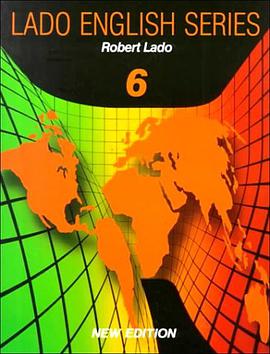

具体描述
Chapter OneIntroduction: The Philosophy of HegelIt has become customary in the introduction and exposition of Hegel to begin by bemoaning the difficulty of the task and, especially, of making a beginning at all. Many of Hegel's commentators have been compelled to go through a sort of personal catharsis before plunging into the labyrinthine abyss of Hegel's system and its expression. But if it is true, as Goethe says (and Hegel repeats), that there is no remedy but love against the great superiorities of others, then a purging of one's complacency and conceit may indeed be the best way to approach Hegel--or any other great thinker.His entire philosophy is itself a spiritual bath, a baptism, which ravishes everything in its path and leaves nothing on earth or in heaven untouched. It is a religion built upon a profound faith, which teaches that we must die in order to live, and which regards man as natural, and points out how he may be born anew--how his first nature may be changed into a second, spiritual nature. It is a philosophy of education, a dialectical "paideia, "which calls upon us to obey that absolute commandment: "know thyself; "and a Promethean attempt to show that this summons is not an arbitrary law imposed from without, but the free and essential act of the God within, our innermost self. But in no other philosophy does the word "self" appear more often, Yet more selflessly, than in that of Hegel, for the self that gradually and painfully emerges from its struggle with a protean world (which is, in truth, an inversion of its own nature) is like a phoenix risen from the ashes of its own funeral pyre, a subject become substance, creating out of itself bytransforming itself and canceling within itself a myriad of inadequate forms of its own truth.Hegel's philosophy is the suffering, death, and if we believe and can follow him, resurrection of everything incomplete, unknowing, and disconnected. It is the most ambitious, and at once impassioned and objective, endeavor to construe the inner and outer worlds of human experience rationally, and to systematize this construal into a "Science" of philosophic logic: "To help to bring philosophy nearer to the form of science " Wissenschaft]--"that goal where it can lay aside the name of "love "of knowledge and be actual "knowledge--"that," Hegel says, "is what I have set before me."' But above all, Hegel's is a philosophy of freedom, where each human effort to discern the work of reason in all the processes of reality--in the animate and inanimate, in the intentional and unintentional, in the motions of atoms and stars, and in the labors and contests of men and nations--is at the same time a phase or moment of an eternal self-activity through which Spirit wins its independence from every form of externality by sensing, imagining, willing, and finally thinking this manifold otherness into an organic totality, in which the whole alone is true, and the consciousness of this, freedom: Everything that from eternity has happened in heaven and earth, the life of God and all the deeds of time simply are the struggles for Spirit to know itself, to make itself objective to itself, to find itself, be for itself, and finally unite itself to itself, it is alienated and divided, but only so as to be able thus to find itself and return to itself. Only in this manner does Spirit attain its freedom, forthat is free which is not connected with or dependent on another.Spirit is the truth, says Hegel, and the sole truth of Spirit is freedom. But he adds, elsewhere, that this freedom is won only through a "stern strife" against our own naive subjectivity, against the immediacy of arbitrary desire and passion. This stern strife makes many turn back, but it is only through this battle that culture is attained."The truth is the whole," Hegel says, But this whole is only the process of Spirit's own development, realized in the world and comprehended in thought, and the whole truth about Hegel is likewise a result, which can only be had by traversing and sharing the full range of the development of his thinking. While it is impossible for us in the brief compass of this Introduction to discuss the wealth of this development that Hegel's philosophy recounts, we can at least try to bring into focus prime aspects of the notion of development itself. For the notion of development is crucial. Its importance for understanding Hegel is paramount, and in his History of Philosophy he states explicitly that "we could, indeed, embrace the whole in the single principle of development Entwicklung]; if this were clear, all else would result and follow of its own accord." There is, however, no "secret" of Hegel, in the sense that by employing some sort of magic formula, one could bypass the labor and difficulty of reaching one's goal. Success in this case is a journey, and failure largely a fear of undertaking it. The persevering student will find that Hegel's "difficulty" is not external and contrived, but essential and necessary, the difficulty, as one writer puts it, of permanent and universalintelligibility, and that if the obstacles that his thought presents seem extraordinary, they are so only in proportion to the goals which overcoming them permits us to attain.
作者简介
目录信息
读后感
评分
评分
评分
评分
用户评价
教授君能把Hegel讲得如此透彻清晰果然是神一般的人物(。
评分教授君能把Hegel讲得如此透彻清晰果然是神一般的人物(。
评分教授君能把Hegel讲得如此透彻清晰果然是神一般的人物(。
评分教授君能把Hegel讲得如此透彻清晰果然是神一般的人物(。
评分教授君能把Hegel讲得如此透彻清晰果然是神一般的人物(。
相关图书
本站所有内容均为互联网搜索引擎提供的公开搜索信息,本站不存储任何数据与内容,任何内容与数据均与本站无关,如有需要请联系相关搜索引擎包括但不限于百度,google,bing,sogou 等
© 2025 book.quotespace.org All Rights Reserved. 小美书屋 版权所有




















